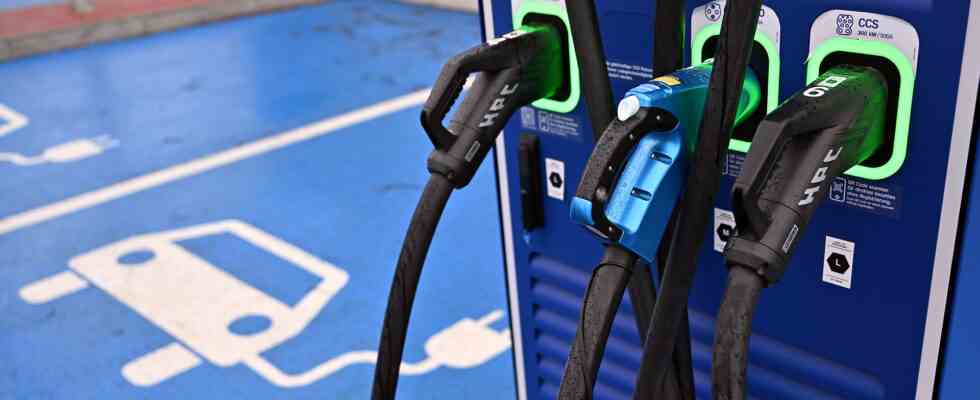background
Status: 06/28/2022 2:38 p.m
The number of electric cars on the streets has risen sharply – but the expansion of the network of e-charging stations is progressing very slowly. What are the reasons – and how is Germany doing?
They come in many shapes and colors, but they are still rare in public spaces in Germany: e-charging stations. They are essential for switching from cars with combustion engines to electric cars. But Germany’s municipalities are not well equipped for this.
More than half of all 10,796 communities do not have a single charging point (as of May 1, 2022). This is shown by an evaluation by the German Association of the Automotive Industry (VDA) based on data from the Federal Network Agency. In the energy transition barometer of the state development bank KfW, more than 50 percent of households recently stated that they could not imagine buying an electric car due to the inadequate public charging infrastructure.
Saxony at the front, Saarland at the bottom
The numbers in the charging network ranking of the VDA also reflect the sluggish expansion. This shows that Saxony, the leader, has an average of almost 14 e-cars per charging point, while Saarland brings up the rear with 28. Most of the columns are in the state capital Saarbrücken, while the more rural north of the state is only sparsely supplied.
The Saarland Ministry for the Environment, Climate, Mobility, Agriculture and Consumer Protection assumes that charging often takes place at home. Since the country has a high home ownership rate of around 64 percent, supply in public spaces is currently difficult. In addition, the charging infrastructure is being expanded according to market-economy aspects. As a result, there were no charging stations in some regions.
Boom in new electric vehicle registrations
Today the EU environment ministers want to decide on the planned ban on new cars with internal combustion engines from 2035. The German position was disputed until the very end in the traffic light coalition. If the ban came, the expansion would have to go much faster.
The gap between new registrations of e-cars and the expansion of charging stations is increasing. In the past twelve months, an average of 57,000 electric cars per month have been registered. During the same period, the number of charging stations grew by only 1,400 per month.
That’s currently around 60,000 nationwide. In comparison: The Netherlands has almost 80,000 and is five times smaller than Germany. The VDA demands that the current rate of expansion should be increased sixfold. Otherwise, the Federal Republic will only have around 210,000 charging points in 2030 – about a fifth of the federal government’s target of one million.
Bureaucracy and delivery bottlenecks as an obstacle
The ADAC considers the long time it takes to find a location and obtain the appropriate permits to be a major problem. In addition, there are now delivery bottlenecks for material and transformers.
In order to increase the speed of expansion, faster planning and approval processes are necessary, according to VDA President Hildegard Müller. “We need to accelerate planning when expanding the charging infrastructure for e-vehicles, and the automotive industry has submitted concrete proposals for this.”
In the VDA charging network ranking, the east is often better off than the west. For the automobile club, the current statistical lead of the eastern federal states is easy to justify, since fewer e-cars are registered there overall. While almost 300,000 “electric vehicles” are registered in North Rhine-Westphalia, Saxony has just 34,000 electric cars.
Master plan charging infrastructure II is on hold
Experts agree: the expansion needs new impetus throughout Germany. Federal Transport Minister Volker Wissing has already announced the master plan for charging infrastructure II. Among other things, this envisages accelerating planning and construction and, above all, tackling the fast-charging infrastructure.
However, the draft was cashed in by the Federal Ministry of Economics due to disputes about responsibilities. According to a spokeswoman for the Ministry of Transport, one is currently in the “internal government coordination process”. It is still unclear when the master plan will be presented to the cabinet. The momentum in the expansion of e-charging stations in public spaces is therefore unlikely to materialize for the time being.

